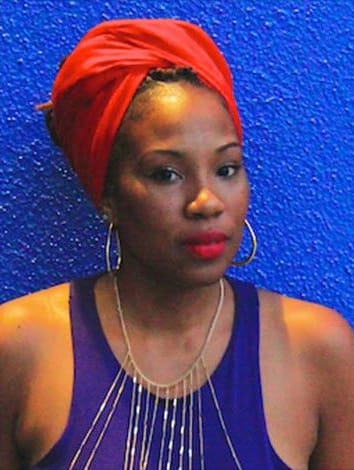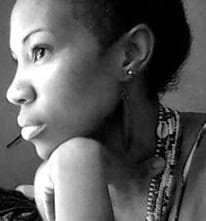by The People’s Minister of Information JR
At one of my many jobs, I am a fifth grade teacher in Oakland, and sadly, during this Black history month, when I asked my students to name some honorable Black people who contributed to our existence and fight for liberation, all that they could name is Rosa Parks and Martin Luther King. Instead of always pointing the blame towards someone else, I needed to take a look at how I was contributing to my students’ knowledge base in dealing with their own history.

Author Akua Agusi’s books are some of the keys that I am going to use to unlock their minds to the knowledge of themselves. Her children’s books deal with the history of Black giants like Marcus Garvey, Madame C.J. Walker, Queen Nzinga and Imhotep. And there are many more in the works.
Please support revolutionary Black art and literature with your purchasing dollars so we can continue to keep Akua in business and inspire more people to make conscious and revolutionary art and literature. Check her out in her own words.
M.O.I. JR: Can you tell people how you became a writer of Black children’s books? What inspired you to create Seeds Publishing?
Akua: I began writing out of necessity. When my son was about 4 or 5 years old I taught him about Huey P. Newton. He eventually asked me if Huey was still alive, to which I replied that he died due to an illness of sorts.
I made the decision to word it that way because as I was answering him, I was instantly faced with my reality that if I decided to expose my son to the harsh reality of drug addiction and it being one of many weapons against our Afrikan people living in America, I would have to HOPE that my job to nurture my son’s critical thinking skills were sharp enough to still be able to appreciate Huey, and others for that matter, for their positive contributions.
Next I taught him about Marcus Garvey and the images that I saw for children’s books were not tasteful in my opinion. Most of the sample pages had an image of Garvey in handcuffs. This was the exact point when I started creating a book for my son with the intention of it being only for him. Someone read it and the rest continues to unfold.
M.O.I. JR: What books did you grow up with that really moved you?
Akua: I had three memorable books in my childhood: “Corduroy “by Don Freeman is one. The other two I actually don’t recall the titles of, but I will never forget what they were about. One was a small novel size book about important women of color in America. There were about five stories. The other book was about Ida B. Wells.
M.O.I. JR: What is the importance of literature to a people like us who have been kept from reading for centuries in this country during the Maafa?

Akua: Reading is absolutely crucial to our people. It may not hold the same weight to a people who have more of their history, traditions and culture intact. There are so many lessons and heightened perspectives that come about from reading. I fully acknowledge that some people learn better through other mediums and that’s fine to me. However reading is fundamental.
There are many angles that can be seen when you have to imagine certain things because your mind has to create a picture to go along with the words. I believe reading can offer self-discipline because you have to be still, which can aid you if you want to incorporate meditation at some point in your life. Although reading is important, discernment and logic are crucial pieces in the puzzle, because everything you read isn’t true and some things are OK on the surface but become more valuable as you add your own thoughts and experience into the perspective.
Reading is absolutely crucial to our people. There are so many lessons and heightened perspectives that come about from reading.
M.O.I. JR: Can you tell us a little bit about your newest work, the Imhotep workbook? Why did you choose the great Imhotep to theme it after?
Akua: I wanted to create a volume of books that would cover many of the same subjects that Imhotep has been said to have mastered. I also wanted more people – children and adults – to get more comfortable referring to an Afrikan as an ancient genius by name. Many people refer to Greek students of Afrikan knowledge as teachers of humanity, mostly due to lack of study and familiarity with global Afrikan history.
M.O.I. JR: Why did you do a math book?
Akua: I chose math because there’s a million Afrikan centered alphabet books but not many focused on math. It was also a more effective way to introduce Afrikan centered symbols and images.
M.O.I. JR: What are some of your other titles?
Akua: The legacy of Marcus Garvey “The Successes of Marcus,” “Madam C.J. Walker’s Road to Success,” which is one of my favorite books because many people are misinformed about her legacy, and “Queen Nzingha and Saniyah’s Face.” I am working on three other titles; currently I have a fundraiser for one of them, “It’s All Good … Hair” on www.GoFundMe.com.
I am very eager to provide this book for little girls. It will teach them from an early age to appreciate all textures of hair and dispel the falsity of there being such a thing as “good hair.” I feel like this piece of our identity holds a lot of weight in our love and appreciation of self.
Currently I have a fundraiser for “It’s All Good … Hair” on www.GoFundMe.com. I am very eager to provide this book for little girls. It will teach them from an early age to appreciate all textures of hair and dispel the falsity of there being such a thing as “good hair.”
M.O.I. JR: What are the highlights and challenges in running an independent publishing company?
Akua: The highlights are having an unrestricted voice and ability to share knowledge. The difficulty for me has been in delegating tasks to outside sources because as a business owner you tend to wear too many hats and I have found it to be crucial to know when to bring others on your team in to assist.
You have to seek your own opportunities as an independent publishing company. Recently I was able to expand distribution to Afrikan World Books, which is a big deal for me. They have contracts with most of the Black-owned book stores!
M.O.I. JR: What is your creative process like when you are creating a new book?
Akua: Writing ideas come from everywhere and nowhere. What I mean by that is there are times where something just hits me and ideas start shooting into my head about what’s needed primarily in the Afrikan community. There are other times when I am studying or reading for fun and an idea builds.
Writing ideas come from everywhere and nowhere.
The next step for me is meditation. I always check to see if the time is right. After that I do research and networking on the subject. I start writing rough drafts and notes during this time as well. I’ve learned to remain flexible during the creation process because what may seem like a terrible mishap can lead to a wonderful expansion or piece of the book that otherwise would not have been included.
M.O.I. JR: How could people purchase your products?
Akua: My books are available or at least should be available at most bookstores locally. If they are not, please suggest them! My website is always a great option as well www.seedsbookpublishing.com.
M.O.I. JR: How could people stay up with you online?
Akua: I have a Facebook page for my publishing at www.facebook.com/seedsbookpublishing. My Instagram is Akua_Agusi, and I have a WordPress: queenakua.wordpress.com.
The People’s Minister of Information JR Valrey is associate editor of the Bay View, author of “Block Reportin’” and “Unfinished Business: Block Reportin’ 2” and filmmaker of “Operation Small Axe” and “Block Reportin’ 101,” available, along with many more interviews, at www.blockreportradio.com. He can be reached at blockreportradio@gmail.com.





